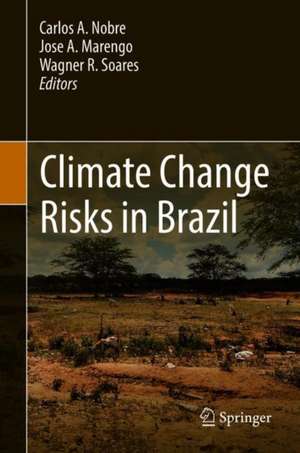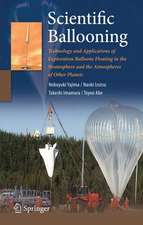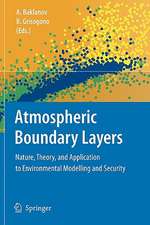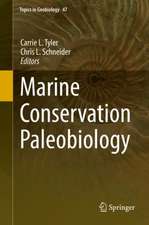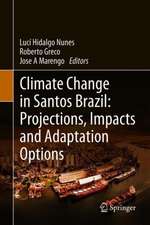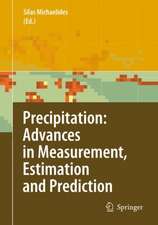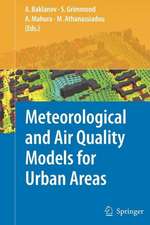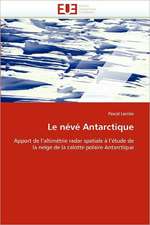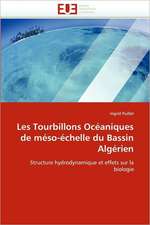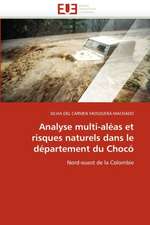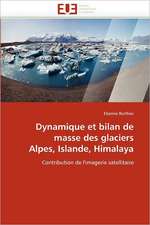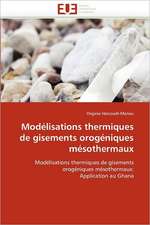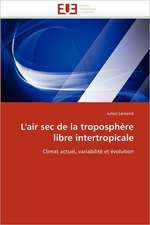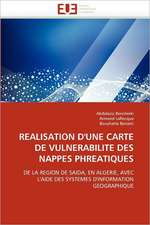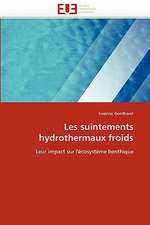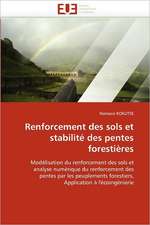Climate Change Risks in Brazil
Editat de Carlos A. Nobre, Jose A. Marengo, Wagner R. Soaresen Limba Engleză Hardback – 12 oct 2018
| Toate formatele și edițiile | Preț | Express |
|---|---|---|
| Paperback (1) | 724.32 lei 43-57 zile | |
| Springer International Publishing – 27 dec 2018 | 724.32 lei 43-57 zile | |
| Hardback (1) | 644.18 lei 43-57 zile | |
| Springer International Publishing – 12 oct 2018 | 644.18 lei 43-57 zile |
Preț: 644.18 lei
Preț vechi: 757.85 lei
-15% Nou
Puncte Express: 966
Preț estimativ în valută:
123.26€ • 129.04$ • 101.99£
123.26€ • 129.04$ • 101.99£
Carte tipărită la comandă
Livrare economică 07-21 aprilie
Preluare comenzi: 021 569.72.76
Specificații
ISBN-13: 9783319928807
ISBN-10: 3319928805
Pagini: 240
Ilustrații: XVIII, 226 p. 90 illus.
Dimensiuni: 155 x 235 mm
Greutate: 0.52 kg
Ediția:1st ed. 2019
Editura: Springer International Publishing
Colecția Springer
Locul publicării:Cham, Switzerland
ISBN-10: 3319928805
Pagini: 240
Ilustrații: XVIII, 226 p. 90 illus.
Dimensiuni: 155 x 235 mm
Greutate: 0.52 kg
Ediția:1st ed. 2019
Editura: Springer International Publishing
Colecția Springer
Locul publicării:Cham, Switzerland
Cuprins
1. Introduction.-2. Assessment of Warming Projections and Probabilities for Brazil.- 3. Agricultural Sector.- 4. Health Sector.- 5. Biodiversity Sector.- 6. Energy Sector.- 7. Final Remarks and Recommendations.- Glossary.
Notă biografică
Carlos Afonso Nobre, holds an Electronic Engineering degree by the Institute for Aeronautic Technology (ITA) and Ph.D. in Meteorology by the Massachusetts Institute of Technology – MIT. He was president of the Coordination for the Improvement of Higher Education Personnel – CAPES - from the Ministry of Education (MoE). He acted as the director of the National Centre for Monitoring and Warning of Natural Disasters (CEMADEN) and of the Secretariat of Research and Development Policies and Programmes (SEPED) of the Ministry of Science, Technology and Innovation – MCTI. He started his professional career at the National Institute for Amazonian Research (INPA) and then as researcher of the National Institute for Space Research (INPE). His main interests are on the fields of climatology, global change, Amazonia and sustainable development. He is currently a member of the High Level Scientific Advisory Panel on Global Sustainability of the UN Secretary General. He is a foreign member ofthe United States National Academy of Sciences (NAS) and member of the Brazilian Academy of Sciences and Academy of Sciences for Developing Nations (TWAS). He is a member of the Joint Steering Committee of the World Climate Research Programme (WCRP). He was one of the authors of the IPCC Fourth Assessment Report, which in 2007 won the Nobel Peace Prize, together with Al Gore.
José Antônio Marengo, has a degree in Physics and Meteorology and a Master's in Land and Water Resource Engineering from the National Agrarian University in Lima, Peru, as well as a Ph.D. in Meteorology from the University of Wisconsin - Madison (1991) in the USA. He did a post-doctorate at NASA-GISS and Columbia University in New York and at the Florida State University, in Florida (USA) in climate modelling. He was senior researcher of the National Institute for Space Research (INPE) between 1995 and 2014. He is member of several United Nations international panels and work groups on global changes in Brazil and abroad. He has written over 250 articles, book chapters, books, technical reports and pieces for conferences. He is a senior member of the Scientific Committee of the Brazilian Panel on Climate Change (PBMC), and he was Coordinating Lead Author (CLA), Lead Author (LA) and Review Editor (RE) for the reports produced by the IPCC.. He is also a member of the Brazilian Academy of Sciences and the São Paulo State Academy of Sciences and a CNPq 1-A researcher. He is currently senior researcher and General Coordinator of Research and Development at CEMADEN (National Centre for Monitoring and Early Warning of Disasters), of the Ministry of Science, Technology and Innovation (MCTI), where he works with extreme events and natural disaster risk reduction.Wagner Rodrigues Soares, has a degree in Meteorology from the Pelotas Federal University. He has a Master’s in Agricultural Meteorology by the Viçosa Federal University and PhD in Meteorology by the National Institute for Space Research (INPE). He acted as researcher in several projects on climate change and variability like: PROBIO, CT-HIDRO, PACS-SONET, PROSUR, LBA-RACCI, LBA-ECO and SALLJEX, among others. Reviewer of journals such as the International Journal of Climatology and the Brazilian Geography Magazine. Group 1 member of the Brazilian Panel on Climate Change (PBMC). He worked as a consultant of the United Nations Environment Programme in the climate modelling area. He has experience in geosciences, with emphasis on meteorology, acting mainly on the following issues: climate change, climate and extreme hydrological events, climate modelling, low-level jet and moisture transport in the lower atmosphere, impact and climate scenarios assessment.
Caracteristici
Maps extreme temperature increase scenarios in Brazil Highlights the risks of dangerous levels of warming rates on water availability and food production Discusses the effects of heatwaves on human health
